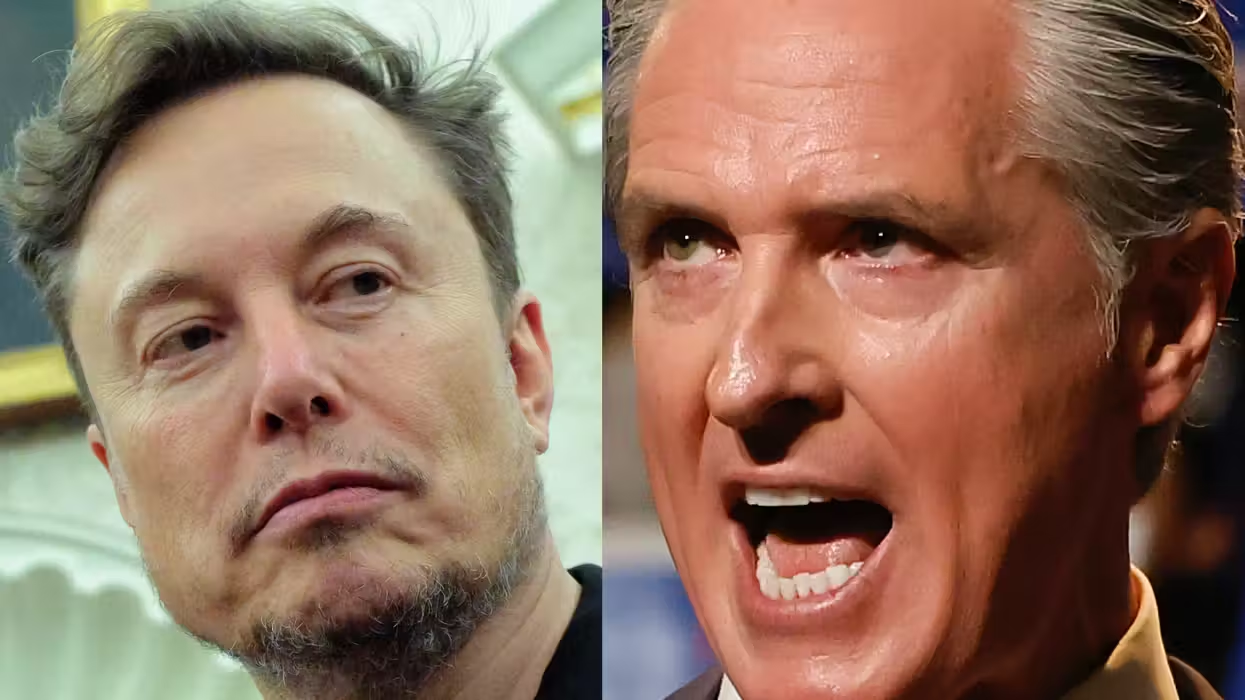
© 2025 Blaze Media LLC. All rights reserved.
Media Claim Fact Check: Santorum's Tax Plan Will 'Blow a Hole in the Budget' & Give Most Tax Cuts to the Wealthy
January 20, 2012
"...to discuss a GOP candidate's tax policy while burying or failing to mention their plans to cut government expenditures could be very misleading."

It appears former Pennsylvania senator Rick Santorum’s tax plan is the latest proposal to undergo intense mainstream media scrutiny.
“The tax plan by Republican presidential candidate Rick Santorum would cut taxes for most Americans while swelling the federal budget deficit by $900 billion in a single year, according to an independent study,” writes the Associated Press.
“...the Tax Policy Center found [that] Santorum’s plan would blow a $1.3 trillion hole in the budget, gutting federal revenue by about 40 percent,” Think Progress reports.
“Rick Santorum...favors a huge broad-based tax cut that would massively increase the budget deficit...[a]ccording to new estimates by my colleagues at the Tax Policy Center,” Forbes reports.
There's a consensus in the media: Rick Santorum's tax plan would increase the budget deficit.
However, to accept the conclusion of these reports one must first accept the premise that government expenditures won’t be altered before or after calendar year 2015 and that the economy will remain in a static zero growth state.
But perhaps the former Pennsylvania senator understands that tax cuts without economic growth or a reduction in government spending would lead to an inflated deficit. Maybe that's why the has also proposed to cut $5 trillion in federal spending over five years, according to his campaign website.
This is what the Tax Policy Center (TPC) analysis states [emphasis added]:
TPC’s analysis measures the change in tax liabilities against two alternative baselines: current law, which assumes that the 2001-10 tax cuts all expire in 2013 as scheduled, and current policy, which assumes that the 2011 law is permanent (except for the one-year payroll tax cut and temporary investment incentives).The Santorum plan would reduce federal tax revenues substantially [Editor's note: via tax cuts]. TPC estimates that on a static basis, the Santorum plan would lower federal tax liability by about $1.3 trillion in calendar year 2015 compared with current law, roughly a 40 percent cut in total projected revenue. Relative to a current policy baseline, the reduction in liability would be about $900 billion in calendar year 2015.
While it’s true that the difference in government expenditures and tax revenues would increase under certain tax-reducing policies, to discuss a Republican candidate's tax policy while burying or failing to mention their plans to cut government expenditures or grow the economy could be very misleading.
This may not come as a surprise. This has long been the strategy against tax cuts: to repeatedly claim that a reduction in revenues will cause an increase in the budget deficit. Again, in order to achieve that former while avoiding the latter, it would mean that one would have to reduce expenditures – which is precisely what many of the GOP candidates have proposed.
"Most of the tax cuts in Santorum’s plan would go to the wealthiest households, according to the study," reports the AP.
The TPC analysis does not say this. In fact, the Santorum plan would cut taxes for about 81 percent of taxpayers by an average of more than $9,700, while less than one-half percent would face tax increases averaging about $175, according to the analysis.
Furthermore, Santorum’s plan would reduce the number of income tax brackets from six to two, lowering the top rate from 35 percent to 28 percent while keeping the bottom rate at 10 percent. He would, according to his plan, cut the corporate income tax in half for most companies — lowering it from 35 percent to 17.5 percent. He has also said that he would eliminate the corporate tax for manufacturers.
The AP could have mentioned that although eliminating taxes on manufacturers has many upsides, there are also some potential downsides. Economists have pointed out that eliminating taxes on manufacturers, thereby incentivizing companies to relocate to the U.S., could adversely affect the markets by encouraging companies in other industries to move into manufacturing areas -- all of which could potentially create gluts (overcapacity) and/or shortages.
While the reasons for not disclosing such information remains unclear, many believe the media has ignored the downsides and/or upsides to the Republican candidate's plans for economic growth and expenditure reduction and has instead focused solely on the downsides to cutting taxes.
"Santorum often complains that the deficit 'is exploding,' but his plan would do nothing to turn around the nation’s budget woes, instead spending trillions to cut taxes for those at the very top of the income scale," Think Progress moans.
Is this accurate?
According to his proposed plan, he would triple the exemption that parents can claim for dependent children, cut the top tax rate on investment income from 15 percent to 12 percent, and retain tax breaks for charitable donations, mortgage interest and retirement savings.
One could make the argument that tax exemptions for children would disproportionately benefit lower income households, rendering the claim that Santorum's tax cuts mostly benefit "the very top of the income scale" rather inaccurate.
The point is this: if one accepts both the premise (that base policy and the economy will stay as-is) and conclusion put forward by the AP, Think Progress, and (to a lesser extent) Forbes, then Washington should never cut or reduce taxes – ever! – because it will only increase the deficit.
Or, as Forbes put it:
...like his opponents in the race for the GOP’s presidential nomination, Santorum is proposing extremely generous tax cuts at the price of big increases in the budget deficit
Perhaps the GOP candidates realize this and that's why, along with "extremely generous tax cuts," they've also proposed "bold" plans to drastically reduce government expenditures.
[Author’s note: for a greater understanding of the relationship between tax rates and tax revenues, I would refer you to the Laffer Curve.]
See Santorum’s Full Tax Plan Here
The Associated Press contributed to this report.
(H/T Joe Vicinanzo)
Want to leave a tip?
We answer to you. Help keep our content free of advertisers and big tech censorship by leaving a tip today.
Want to join the conversation?
Already a subscriber?
more stories
Sign up for the Blaze newsletter
By signing up, you agree to our Privacy Policy and Terms of Use, and agree to receive content that may sometimes include advertisements. You may opt out at any time.
Related Content
© 2025 Blaze Media LLC. All rights reserved.
Get the stories that matter most delivered directly to your inbox.
By signing up, you agree to our Privacy Policy and Terms of Use, and agree to receive content that may sometimes include advertisements. You may opt out at any time.






